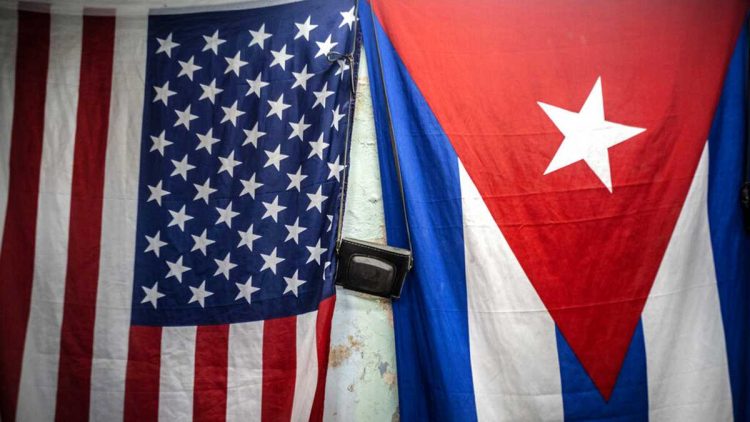President Joe Biden has finally learned the lesson that each of his 11 predecessors had to grudgingly accept when it comes to Cuba: Some U.S. interests can only be advanced by engaging with Havana. After a policy review that lasted 15 months, during which former President Donald Trump’s draconian economic sanctions remained in place, the State Department recently announced it will relax the measures that have had the greatest direct impact on the Cuban people.
The change comes at a moment when irregular migration from Cuba is aggravating the crisis on the U.S. southern border and Latin American heads of state are threatening to boycott the upcoming Summit of the Americas if Cuba is excluded.
Biden’s new measures are not a return to former President Barack Obama’s policy of normalization. They represent a limited, unilateral relaxation of specific sanctions that, taken together, look more like Obama’s first-term Cuba policy than the historic breakthrough of restoring full diplomatic relations announced in December 2014. But they will have an enormous impact, improving the standard of living for millions of Cubans and reducing the drivers of irregular migration.
Cuba-United States: the beginning of a new thaw or more of the same?
Biden will lift restrictions on cash remittances, which amounted to some $3.5 billion annually before Trump blocked them, and he will restore people-to-people educational travel, used by more than 638,000 U.S. visitors a year until Trump abolished it. The new policy also promises financial measures to facilitate commerce between U.S. businesses and Cuba’s growing private sector, though the devil will be in the details of the final regulations.
Biden’s new measures appear driven by the confluence of the migration crisis and Latin America’s rebellion over U.S. policy.
As the Cuban economy has contracted under the twin blows of U.S. sanctions and the COVID-19 pandemic, migration has soared. But since Trump downsized the U.S. Embassy in 2017, including ending consular services, the issuance of immigrant visas has plunged 90 percent. With safe, legal migration closed, tens of thousands of Cubans have crossed to the Latin American mainland and trekked north to the U.S. border—more than 35,000 in April alone, and 115,000 since last September. That is already more people than arrived during the 1994 “rafters” migration crisis and almost as many as in the 1980 Mariel boatlift—with no end in sight.
In April, the U.S. invited Cuba to resume regular migrations talks, as mandated by the bilateral migration agreement that grew out of the 1994 crisis—consultations that Trump suspended. Biden’s new measures reaffirm an earlier commitment to gradually restaff the U.S. Embassy’s consular section and resume issuing immigrant visas under the Cuban Family Reunification Program. Moreover, Biden’s restoration of remittances and travel will ease the economic hardship that is the main reason people leave.
Another key driver of Biden’s new policy are the objections from Latin American heads of state to senior U.S. officials’ assertions that Cuba, Venezuela and Nicaragua will not be invited to the Ninth Summit of the Americas, which Biden will host next month in Los Angeles. Mexican President Andres Manuel Lopez Obrador rebuked the U.S. administration, warning, “If everyone is not invited, I will not go.” Other doubtful attendees include the leaders of Bolivia, Honduras and the 20 islands of the Caribbean Community. Brazilian President Jair Bolsonaro has hinted he might not participate either, although for reasons unrelated to Cuba. A boycott would be a huge embarrassment for Biden. Even at this late date, invitations have not gone out, so Cuba may be offered a seat at the table after all.
Migration and hemispheric politics are not new issues in U.S.-Cuban relations. Three other presidents faced migration crises: Lyndon Johnson in 1965, Jimmy Carter in 1980 and Bill Clinton in 1994. Each of them engaged with Cuba diplomatically because that was the only way to resolve the crisis at hand. Moreover, all three times, the domestic political costs of crises that became frontpage news were far greater than the risk of offending Cuban Americans in South Florida by engaging with the Castro regime.
Two of Biden’s predecessors similarly faced challenges from Latin America over their Cuba policies. In the early 1970s, Latin American countries began defecting from the 1964 Organization of American States’ economic and diplomatic sanctions on Cuba. The U.S. secretary of state at the time, Henry Kissinger, complained that Cuba was dominating meetings with his Latin American counterparts. Getting Cuba off the inter-American agenda was one of Kissinger’s motives for opening secret talks in 1975 to normalize relations with Havana, though they came to nothing.
Obama’s 2014 decision to normalize relations was heavily influenced by the public scolding he received from Latin American heads of state at the Sixth Summit of the Americas in 2012. Even close U.S. allies warned that unless Cuba was invited to the 2015 summit, they would not attend. In the words of Obama’s deputy national security adviser, Ben Rhodes, Washington’s policy of perpetual hostility had become “an albatross around the neck of the United States in the hemisphere and around the world.”
And so it remains. The uncanny parallel between the embarrassment Obama suffered at the Sixth Summit and the risk of even greater embarrassment for Biden at the ninth has finally forced the White House to embrace a limited reopening to Cuba. It is a good first step that will benefit many Cuban families, but unilateral actions alone are not enough.
In its last two years in office, the Obama administration signed 22 bilateral agreements with the Cuban government covering a wide range of issues of mutual interest, from environmental protection to law enforcement. The State Department also opened talks with Havana on the highly contentious issues of human rights and compensation for nationalized property and damages. In reversing Obama’s policy, Trump froze the implementation of those agreements and broke off all substantial diplomatic dialogue with Cuba.
The next step for Biden in developing his own Cuba policy should be to pick up where Obama left off, building closer cooperation with Havana on issues of mutual interest—not as a favor to the Cuban government, but because the only way for the U.S. to make progress on transnational problems is to cooperate with its neighbors.
The experience of other presidents demonstrates that engaging diplomatically with the Cuban government on issues of mutual interest, migration first and foremost, has been an effective way to advance U.S. interests. Cuban diplomat Ricardo Alarcon, who led Cuba’s negotiations with Washington for two decades, concisely summed up the logic of engagement: “We are two neighbors who have had abominable relations,” he said, but “unlike people, we aren’t able to move away.”
***
*This article was originally published on the WRP site. It is reproduced here with the explicit authorization of its author.
William M. LeoGrande is Professor of Government at American University in Washington, and co-author with Peter Kornbluh of “Back Channel to Cuba: The Hidden History of Negotiations between Washington and Havana” (University of North Carolina Press, 2015).










